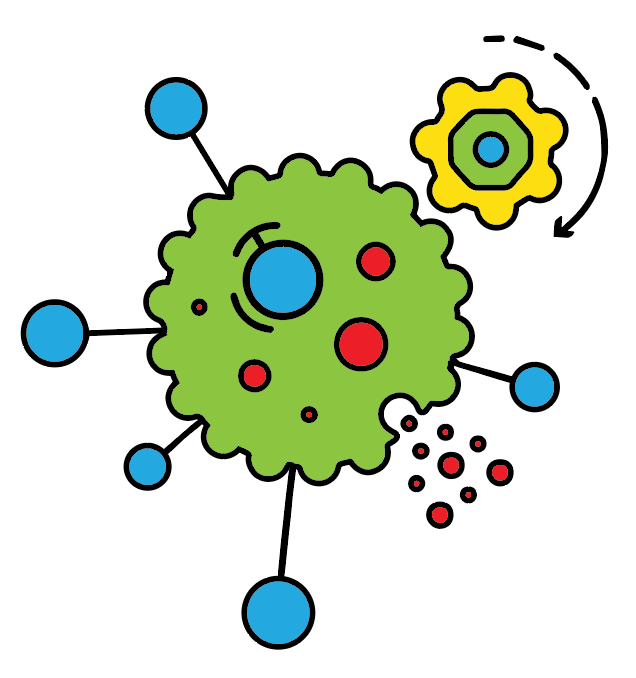GOETZ LAB WEBSITE LINK

Research project
Understanding the metastasis cascade: still a long way ahead
“Metastasis can be considered as the end product of a multistep bio-mechano-chemical process where cancer cells disseminate to distant organs and home in a new tissue microenvironment (Fig.1). Metastases are resistant to multiple therapies and are responsible for the large majority of cancer-related deaths. It is now clear that the invasion-angiogenesis-metastasis cascade is not only dependent on genetic and epigenetic alterations within cancer cells, but also involves non-neoplastic stromal cells that contribute to cancer progression. However, the molecular and cellular mechanisms driving metastasis formation remain to be elucidated and better described in a realistic in vivo context.”
In the Tumor Biomechanics Lab, we aimed at understanding the mechanisms of tumor metastasis and dissemination. The team is divided into 5 research axes:
- Explore – Vincent Hyenne: Cancer cells from the primary tumor modify distant organs to create a favorable environment for incoming disseminated tumor cells. This long-distance communication relies notably on the secretion of tumoral extracellular vesicles. In the Explore group, we study how the EV uptake by endothelial, immune or stromal cells, structure the premetastatic niche.
- Early – Isabelle Duluc: Tumors are not single masses of identical clonal cells but rather are composed of cancer cells with various genetic, epigenetic, transcriptional, and metabolic phenotypes. This diversity supports disease progression and resistance to treatment. In the Early team, we focus on intra- tumoral heterogeneity, and more specifically on CDX2 heterogeneous expression, in colon tumorigenesis and metastasis.
- Force – Naël Osmani: As the tumor cells progress through all the steps of the metastatic cascade, they are faced with various and changing external mechanical stresses challenging their survival and their progression. The Force axis aims at characterizing those forces, how they condition tumor dissemination and how cancer cells mechanically adapt.
- Resist – Claire Domon-Dell: Cancer cells have the innate or acquired capacity to escape therapy effects. Focusing on acute lymphoblastic leukemia (ALL), we seek to decipher the mechanisms driving therapeutics resistance, from the effect of unique genetic alterations to the remodeling of the leukemic stem cell niche environment-mediated drug resistance.
- Treat – Olivier Lefebvre: In the Treat axis, we aim at integrating our various discoveries to identify new and promising therapeutic approaches, ranging from improving diagnostic based on the identification of aggressiveness markers to developing new treatments.
We are a group of 6 researchers, 4 post doc, 7 PhD students, 2 support staff and M2 students.



